Share
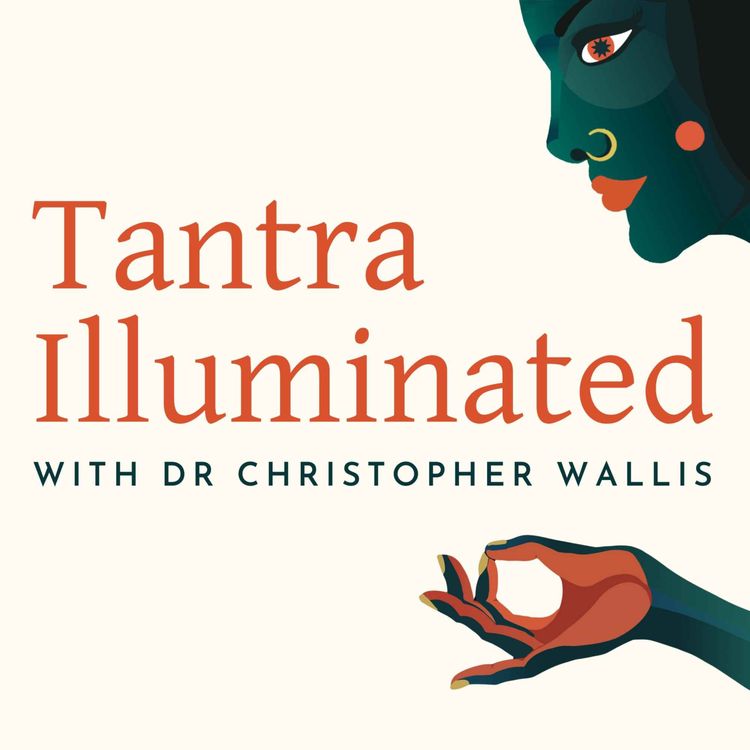
Tantra Illuminated with Dr. Christopher Wallis
The Heart of Recognition: Interview by Ashton Szabo
This week’s episode features an archival interview by Ashton Szabo, dedicated yogi and co-founder of The Alchemy Yoga Center in Bali. The interview was recorded just before the release of The Recognition Sutras. It centers around this 11th-century tantric text, the Pratyabhijñāhṛdaya, which means “The Essence of the Recognition Philosophy”—recognition, that is, of oneself as a direct expression of the universal divine Consciousness. Recognition also that this Consciousness is, in truth, all that exists, and that its five fundamental powers of awareness, enjoyment, willing, knowing, and acting are the sacred endowments of every sentient being. Our conversation highlights how the text illuminates the non-dual nature of existence—where divine Consciousness is not merely transcendent but intimately woven into the fabric of everyday life and the practical applications of this recognition.
Discover a treasure trove of guided meditations, teachings, and courses at tantrailluminated.org.
More episodes
View all episodes
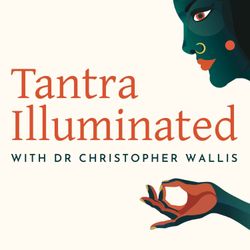
68. Finding Freedom in Troubled Times with Tina Rasmussen
01:56:53||Ep. 68In this grounded and compassionate conversation, Dr. Tina Rasmussen reflects on the nature of awakening in the midst of difficulty — personal, collective, and existential. Speaking from decades of lived inquiry and realization, she points toward a freedom that does not depend on circumstances being resolved, but emerges through honesty, deep presence, and allowing in relation to one’s own experience. Additionally, Tina and Hareesh clarify 'purification' on the spiritual path as a process of clearing obstacles - not moral judgment or an antidote for supposed impurity. They focus on the four key categories of heart, mind, view, and identity, framing purification of these as liberation into presence. Heart practices soften resistance to suffering, while mind purification quiets compulsive thoughts, revealing deeper insight. Precision in this practice is key, like proper form in exercise. The dialogue touches on fear, grief, resilience, and the quiet strength of resting as awareness itself. This episode invites a slower listening, revealing how freedom can be discovered wherever we are, even in troubled times.Discover a treasure trove of guided meditations, teachings, and courses at tantrailluminated.org.Find out more about the upcoming retreats and pilgrimages at https://www.tantrailluminated.org/calendar.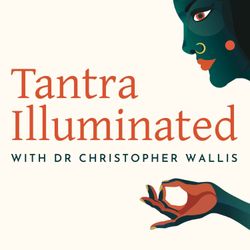
67. The Real Story on Kundalinī
38:32||Ep. 67What is Kundalinī—really—and how did its meaning become so widely misunderstood?In this episode, Hareesh offers a careful historical and philosophical inquiry into one of the most charged and confusing terms in modern spirituality. Tracing the word Kundalinī back to its earliest appearances in classical Tantric sources, he reveals how its original meaning differs radically from popular contemporary interpretations. Rather than a dormant serpent-energy waiting to be awakened, Kundalinī is presented here as a dynamic process—an expression of Śakti arising through specific yogic conditions. A grounded and illuminating reorientation for anyone seeking clarity beyond myth and sensationalism.Discover a treasure trove of guided meditations, teachings, and courses at tantrailluminated.org.Find out more about the upcoming retreats and pilgrimages at https://www.tantrailluminated.org/calendar.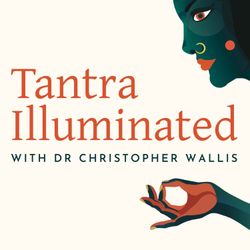
66. The Mystical Positivist With Stuart Goodnick and Dr. Robert Schmidt 2
51:37||Ep. 66In this second part of the archival conversation, Hareesh continues his dialogue with hosts Stuart Goodnick and Dr. Robert Schmidt, turning toward the dynamics of the energy body, emotional digestion, and the long arc of integration. They explore how unresolved impressions (saṁskāras) shape our sense of self, why true digestion requires presence rather than suppression, and how imaginal practices in Tantra awaken a more fluid and responsive relationship to experience. The conversation also touches on ego structures, relational practice, and the pitfalls of spiritual dogma, offering a grounded look at what it means to mature both energetically and as a human.Discover a treasure trove of guided meditations, teachings, and courses at tantrailluminated.org.Find out more about the upcoming retreats and pilgrimages at https://www.tantrailluminated.org/calendar.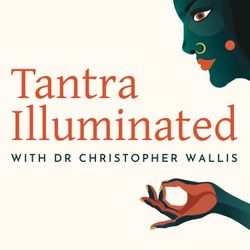
65. Resting into Pure Being
20:00||Ep. 65Today's episode is a short 15-minute guided meditation invites you to return to your most essential presence—the natural, uncreated awareness that has no beginning or end. Through gentle instruction, you are guided to let go of effort and rest in the still, open, intimate ground of being itself. A foundational and centering practice for anyone seeking simplicity, clarity, and natural presence.Discover a treasure trove of guided meditations, teachings, and courses at tantrailluminated.org.Find out more about the upcoming retreats and pilgrimages at https://www.tantrailluminated.org/calendar.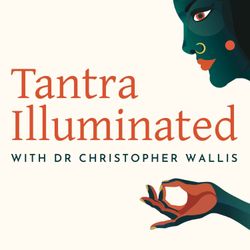
64. Tantra Meets Dzogchen with Ācārya Malcolm Smith
01:49:01||Ep. 64In this illuminating conversation, Hareesh and Ācārya Malcolm Smith trace the philosophical and experiential meeting points between Tantra and Dzogchen, while honoring their distinct lineages. The discussion touches on the origins of Dzogchen, the role of direct recognition in awakening, the tension between conceptual purification and non-conceptual realization, and how both traditions articulate the play of emptiness and manifestation. Moving beyond comparison, the dialogue reveals a shared spirit of inquiry that transcends dogma—where luminous awareness recognizes itself through diverse expressions of wisdom.Discover more of Ācārya Malcolm Smith's work at https://www.zangthal.com/. Discover a treasure trove of guided meditations, teachings, and courses at tantrailluminated.org.Find out more about the upcoming retreats and pilgrimages at https://www.tantrailluminated.org/calendar.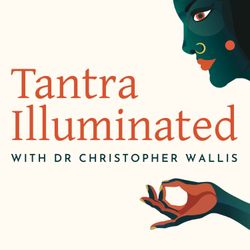
63. Rewiring your Reality with Shamil Chandaria
02:14:19||Ep. 63What happens when the rigor of neuroscience meets the depth of nondual philosophy?In this wide-ranging conversation, Hareesh and Dr. Shamil Chandaria explore the meeting point between consciousness studies, neuroscience, and the Tantric vision of reality. They discuss Shamil’s new course Rewiring Your Reality—a 21st-century synthesis of meditation, philosophy, and cognitive science—and examine perennial questions about awakening, liberation, and the nature of experience itself. The dialogue unfolds through reflections on AI, the limits of scientific explanation, and the timeless dance of Śiva and Śakti as consciousness exploring its own patterns. Together they inquire into whether the universe is moving toward greater self-knowledge or already complete in its perfection.Discover Shamil's new course at https://dandelion.events/e/m9nea .Discover a treasure trove of guided meditations, teachings, and courses at tantrailluminated.org.Find out more about the upcoming retreats and pilgrimages at https://www.tantrailluminated.org/calendar.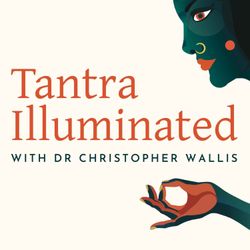
62. The Mystical Positivist With Stuart Goodnick and Dr. Robert Schmidt 1
57:09||Ep. 62In this archival conversation originally recorded in 2016 for The Mystical Positivist radio show, Hareesh joins hosts Stuart Goodnick and Dr. Robert Schmidt to reflect on the meeting point between spiritual experience and critical inquiry. The dialogue traces Hareesh’s early encounters with meditation and grace, the unfolding of his path through the Shaiva Tantra tradition, and the pitfalls of constructing a “spiritual ego.” Together, they explore how genuine awakening requires both love and discernment—the courage to look beyond comforting beliefs into the deeper reality that transcends them.Discover a treasure trove of guided meditations, teachings, and courses at tantrailluminated.org.Find out more about the upcoming retreats and pilgrimages at https://www.tantrailluminated.org/calendar.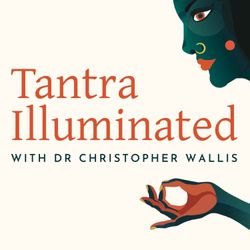
61. The Pulsing Heart of Infinite Stillness
28:19||Ep. 61This guided meditation invites you to rest in the vast silence that underlies all experience, a stillness untouched by thought or sound. Within this infinite quiet, a subtle pulsation arises—the gentle rhythm that gives birth to life itself. By attuning to both the stillness and its living pulse, we discover a presence that is at once serene and dynamic, grounding and liberating. A simple yet profound practice of returning to the ground of being.Discover a treasure trove of guided meditations, teachings, and courses at tantrailluminated.org.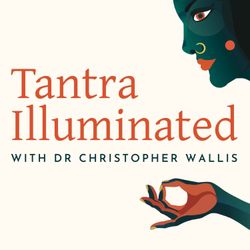
60. The Mandala of Relationality with Josh Schrei from The Emerald
01:38:58||Ep. 60What if awakening is not only an inward journey, but also a maṇḍala woven of our relationships with others and the world?This episode turns to the animist and tantric vision of relationality, where every connection—whether with people, nature, or the subtle dimensions of being—forms part of a greater sacred whole. Through the lens of classical teachings, animism and myth we are invited to reimagine relationships not as distractions from reality but as vital expressions of it, mirrors in which the Self recognizes itself. The conversation opens into how intimacy, conflict, and community can all become doorways into deeper awareness, and how the maṇḍala of relationality reveals the inseparability of self and other.Find out more about The Emerald and The Mythic Body HERE. Discover a treasure trove of guided meditations, teachings, and courses at tantrailluminated.org.Find out more about the upcoming retreats and pilgrimages at https://www.tantrailluminated.org/calendar.